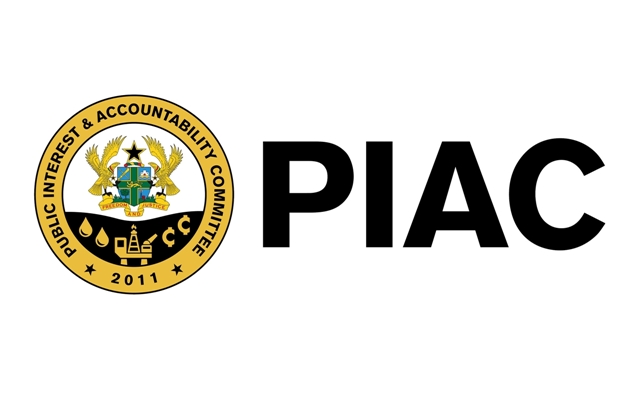The Public Interest and Accountability Committee (PIAC) has raised serious concerns over a steep drop in Ghana’s petroleum revenue, revealing a 56 per cent decline in receipts during the first half of 2025 — a setback attributed to falling crude oil production and global price dips.
Presenting highlights of the Committee’s 2025 Semi-Annual Report at a virtual media engagement on Friday, Richard Kojo Ellimah, Chair of PIAC’s Technical Sub-committee, disclosed that Ghana earned US$370.3 million in petroleum revenue between January and June 2025, compared to US$840 million during the same period in 2024.
“The sharp fall in receipts stems from reduced crude oil output and declining international prices. In the first half of 2025, Ghana produced 18.4 million barrels compared to 24.8 million barrels in 2024 — a 25.9 per cent decline,” Mr. Ellimah explained.
Also Read: Nana Konadu Agyeman-Rawlings: Political matriarch and pioneer of women’s rights in Ghana
He noted that the Jubilee Field contributed about 60 per cent (11 million barrels) of total production, followed by the Sankofa-Gye Nyame (SGN) Field with 24 per cent (4.4 million barrels), and the TEN Field with 16 per cent (2.9 million barrels).
Mr. Ellimah warned that the drop in output and revenue has significant implications for government financing and the sustainability of Ghana’s petroleum sector.
“We are not attracting new investments in the upstream petroleum industry. Since 2018, Ghana has not signed any new petroleum agreement. This is deeply worrying and must be addressed urgently,” he cautioned.
He urged the government and the Ministry of Energy to take decisive action to reverse the trend and secure new investment in the sector.
On revenue distribution, he said the Annual Budget Funding Amount (ABFA) received the largest share of US$148.2 million (53%), followed by the Ghana National Petroleum Corporation (GNPC) with US$65.2 million. The Ghana Stabilization Fund (GSF) and Ghana Heritage Fund (GHF) received US$44.4 million and US$19 million, respectively.
Since the start of oil production in 2011, Ghana has earned a total of US$11.47 billion in petroleum revenues. Of this, US$4.5 billion has supported the national budget, US$3.15 billion has gone to GNPC, US$2.6 billion to the GSF, and US$1.1 billion to the GHF.
Mr. Ellimah also criticized the recent amendment to the Petroleum Revenue Management Act (Act 815), which limits the use of the ABFA exclusively to infrastructure projects.
“While infrastructure focus may help reduce the thin spread of projects, it’s still a broad category. Government should select fewer projects and fund them from start to finish, clearly marking them as ABFA-funded,” he advised.
He lamented that the amendment has cut off the Ghana Infrastructure Investment Fund (GIIF) from receiving ABFA allocations — a change that could undermine critical investments.
“It’s worth recalling that GIIF’s US$30 million investment in the Kotoka International Airport Terminal 3 project yielded US$5.5 million between 2017 and 2019. That’s proof of the value of continued ABFA support,” he stressed.
Mr. Ellimah further revealed that PIAC’s operations have been hampered by a 79 per cent budget cut following the removal of its financing from petroleum revenues.
“Our 2025 budget was slashed to GH¢4.6 million, just 21 per cent of what we requested. This has limited our ability to effectively perform our statutory duties — hence the virtual engagement rather than an in-person session,” he noted.
He also faulted the diversion of 1.26 per cent of ABFA into the District Assemblies Common Fund (DACF), calling it unconstitutional.
“This practice contradicts Article 252(2) of the 1992 Constitution and the Supreme Court’s ruling in the Kpodo and Quashigah case. The Ministry of Finance must align its disbursements with the Constitution,” he asserted.
According to the report, the Ghana Stabilization Fund reserves dropped by 36.9 per cent from US$194 million in the first half of 2024 to US$122 million in 2025 due to withdrawals, while the Heritage Fund increased by 18 per cent to US$1.3 billion.
Mr. Ellimah described the US$100 million cap on the Stabilization Fund as illegal under L.I. 2381, saying it weakens Ghana’s fiscal resilience.
“A proper application of the formula would have retained about US$584 million in the fund. Parliament must ensure compliance to build stronger fiscal buffers,” he said.
PIAC urged the government to act swiftly to halt the decline in oil production, attract new investments, and ensure transparent management of petroleum revenues.
“The state must adopt a long-term, broad-based national development plan approved by Parliament to guarantee continuity and sustainable use of oil resources,” the Committee stressed.


